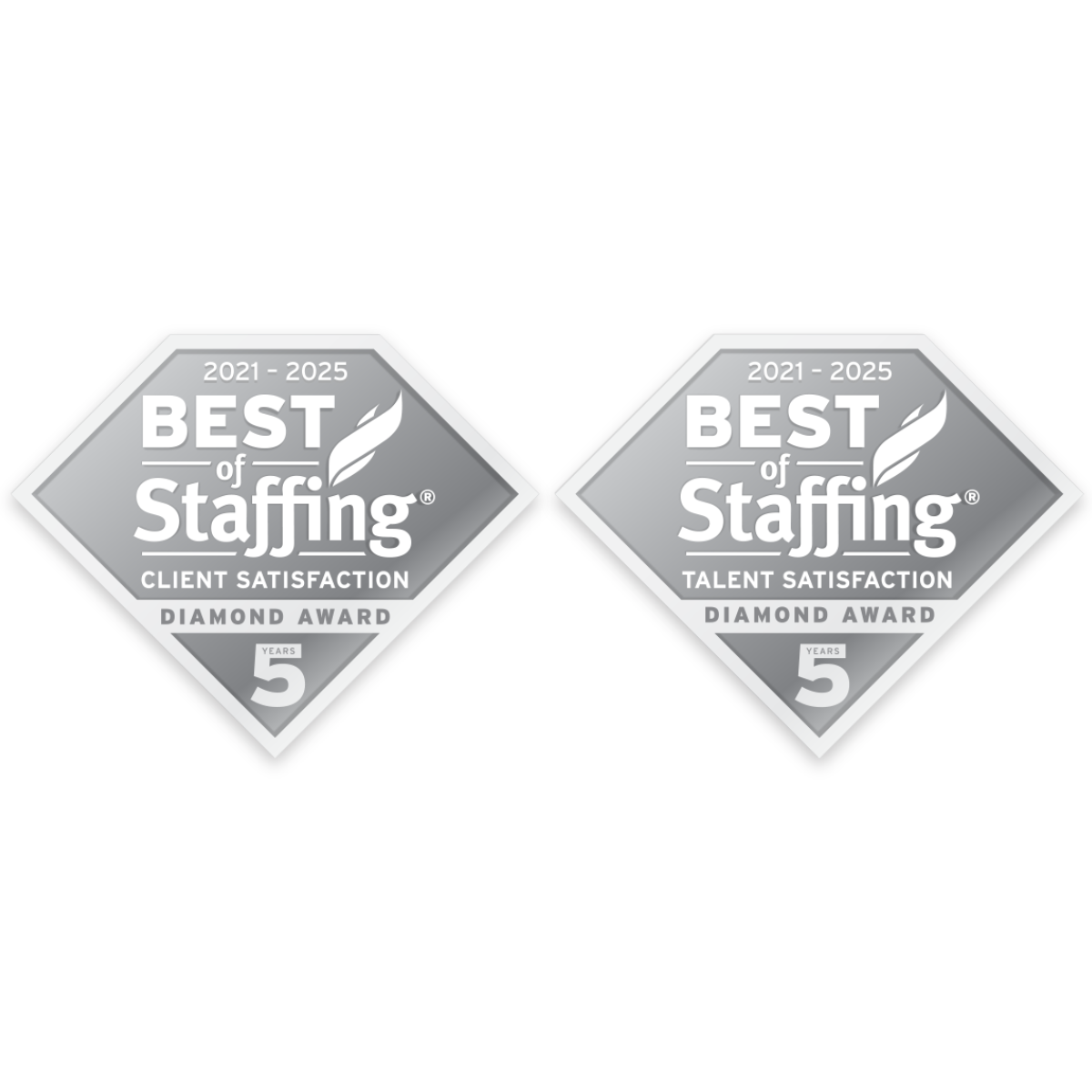All of the job candidates have been interviewed. The long list whittled down to the short and then to the best two contenders for a competitive full-time payroll position. The time has come to make the last decision. So far, this describes a fairly standard sequence of events. However, something differs this time. One of the finalists is a freelancer. Should that matter?
Let’s examine this issue from both sides — hiring manager and freelancer under consideration — and, in the process, write a page for the employment playbook. We’ll call it “The Case for Offering a Freelancer a Full-Time Staff Role.” On the company end, it’s about why to go this route. And for freelancers, it’s the same probe and how to land the job.
Perhaps you’re wondering: why raise this matter in the first place? The reason for it flows from both reality and perception. Fact: there are all kinds of bias in the workplace. One is about bringing freelancers on as employees. Hiring managers may wrestle with: are freelancers suitable for full-time slots rather than gigs? Is their work ethic and experience on par with our expectations? For the sake of ease, they may opt for the straightforward approach — hire a traditional employee for a full-time post. This response doesn’t take into account changes that have occurred in the marketplace and career options. What’s more, decision makers may be unfamiliar with the wide scope of activities and advantages a freelancer may possess. By taking the seemingly path of least resistance, they may miss out on incredible work and other critical success factors.
Freelancers stand to lose a lot when coming up against this predisposition too. It accounts for why they often have a hard time making headway when they decide to pivot to permanent staff positions.
Faced with this predicament: what are hiring managers and freelancers to do?
Why to Employ a Freelancer: Take Inventory
Step 1
Understand the breadth and role of freelancing in our society. Freelancing is a major, highly reputable mode of work. How much so? Freelancers Union delved into this proposition. Its most recent study, “Freelancing in America: 2020,” reported that an estimated 57 million people freelanced during the year. An inconsequential number this is not. This segment represents 35% of the workforce. In addition, freelancing as a whole contributes about $1 trillion to the economy; that’s equivalent to 5% of GDP.
Step 2
Clear the slate of misconceptions about freelancing and freelancers. Why is this important? As suggested, freelancing in some circles carries a stigma. There are those who consider it second tier — a less prestigious career path than employee status. “Debunking Myths About Freelancers” addresses this mindset head-on and point by point.
- Example: Some people think freelancers are working this way because they can’t find permanent jobs. Not so. Freelancing is, by and large, not thrust upon practitioners; instead, they choose it for various reasons, such as wanting to control their work life. To this end, more than 60% of freelancers opt to work for themselves of their own accord.
- Another: Freelancers pursue this path because they don’t want to work hard. Wrong again. Freelancing for a living is challenging and competitive. Those in this space need to vie against others for projects as well as keep clients satisfied and coming back.
- One more: Freelancers are not dependable and won’t complete projects as stipulated. Not true at all. Freelancers must honor agreements; otherwise, they will lose clients and their business will fail. They must live up to their promises as agreed upon.
These and other negative impressions do not hold true. And the proper views translate into abundant checks in the plus column for welcoming a freelancer job applicant to come aboard.
Step 3
Assess the universe of benefits that a freelancer may bestow. In many situations, those who have decided to cross over into permanent job status present the right blend of skills and then some. What are those sought-after qualities?
Extensive range of experience and expertise
Freelancers typically have a diversified book of business. They take on assignments for clients in different industries, stages of development, and geographies. They learn a lot in the course of their work. Perhaps they have acquired deep knowledge in a sector(s) or a smattering in many. They may engage with clients that have a business-to-business (B2B) focus, others in business-to-consumer (B2C), yet others in direct to consumer (D2C), and government too. They may know the lay of the land in one of these marketplaces, several, or all. They are astute about stakeholders, needs, targeting tactics, and terminology. And they have the wherewithal to navigate the landscape. Some freelancers arrived at this status through layoffs, reorgs, and other corporate actions. Those in this category may come from your industry or client base. Their expansive background may qualify them as a valuable asset.
Business acumen and breadth
Freelancers are in business — their own business. They likely do it all, from marketing their wares, strategizing, researching leads and pursuing opportunities, costing out projects, submitting proposals, invoicing, managing accounts, budgeting, paying bills, getting supplies, and lots more. They come equipped with these skills and may apply them, as needed, to your agenda right from the get go. They are, in essence, entrepreneurs; as such, they have a business mindset and capabilities to propose ideas, fresh perspectives, alternatives, and workarounds along the way. As part of their routine, freelancers network and have honed that attitude and behavior. They know how to reach out and interact with people at all levels, which is a helpful trait in any workplace. Freelancers must display professionalism and politeness; this, in turn, represents a range of skills that would be advantageous to most employers and teams.
High quality output and productivity
To maintain and grow their business, freelancers turn out excellent work on demand, which aligns with their clients’ directions, goals, budget, and timeline. They must collaborate and cooperate, be readily available, and eager to please. The most successful in their field anticipate emerging needs and go above and beyond. The deliver consistently and do what’s required to hit and exceed the mark, focusing on the task at hand and making their clients look good. As such, freelancers are flexible and motivated to fulfill the wish lists of those they serve. To produce well-honed work and achieve high standards, freelancers perform research as a way of life; they must exert effort to be informed and stay on top of their assignments, area(s) of expertise, and movements in the marketplace. Plus, they have to keep a constant eye on the competition. Wouldn’t a person like this be a worthy addition to your staff?
The 3 R’s: Responsibility, resourcefulness, and rigor
Freelancers merit an upper case “R” for responsibility. They plan and organize their work life to make deadlines, careful to balance the items on their agenda. They know how to juggle; it’s both an art and science. Since freelancers work independently, they must make the most of what they have at their disposal. That means learning about offerings and outlets for the things that enhance efficiency and effectiveness. This takes initiative, patience, and the ability to make decisions quickly and decisively. In the midst of running a business, freelancers need to attend to projects that are due and those to come. They frequently don’t have the luxury of completing one assignment before reeling in another. For that reason, they must fill the pipeline to maintain the flow of work and money coming in. Bonus R: in light of all they have to do, freelancers are resilient.
Time management, communication, and multiplicity of other skills
Masters of time management — that’s a mark of success for a freelancer. They set priorities and pivot to address issues that pop up. To focus, they must sustain a positive outlook even in trying situations. They deal with criticism constructively and accept accountability for their actions through tactful and clear communication. On that note, freelancers communicate via multiple means — verbally as well as through email, text, social media, and Zoom at this time and going forward. That requires staying up-to-date on communication protocol, including apps and automation. Freelancers have to mount technical challenges to incorporate what’s new on the scene used by a critical mass. They know the digital world and venues of importance to their clients and their own business. Growing and learning are constants. And since they work remotely, they thrive during the pandemic on their own and for others. All of this is emblematic of a freelancer’s life and, by extension, a recipe for desirable employee.
Step 4
Interview freelancers carefully, as you would other candidates. Inquire about how they would approach certain situations. Also address any misgivings you may have through behavioral type questions. Ask for samples and review them closely. Similarly, get a number of references and check them. Discuss not only work, but also working relationships, strengths, and shortcomings.
Freelancers: Traverse the Transition
Step 1
Come to terms with this career move because it’s a big one. Think it through. You have a lot of soul searching to do before applying for and accepting a full-time job. Are you certain you want to change your status? Why, why, why? The article entitled “4 Questions to Help You Decide Between Accepting a Full-Time Offer or Keeping Your Freelance Freedom” addresses this issue.
A primary aspect to consider is financial. But weigh the pros and the cons. That is, with receiving a regular paycheck, possibly making more money, and scoring benefits comes tradeoffs. The latter includes less convenience, the need to commute as well as cover other expenses.
Another element of importance is to know yourself and your goals — both career and personal. Essentially, this is age-old question at any age or juncture: what do you want to be when you grow up?
Understand exactly why you started freelancing and what it would mean to give it up. If this analysis suggests you make the change, the thoughts you’ve uncovered in the process serve a prized purpose. They will provide the fuel to power your move and the insights to present to a potential employer.
Step 2
Play offense and defense. Start with: what is motivating you to change your work pattern from freelance to full-time staff? Address this clearly, succinctly, and convincingly. Similar to a client pursuit, learn about the company and how your experience applies to help it meet its goals. Discover what you can about the hiring manager and team in advance of speaking. On the other end, identify what you’re up against in this space. Know possible objections to hiring a freelancer and come prepared to refute them thoughtfully and persuasively. How would you acclimate to working in a staff role? This area of inquiry pertains to crossing over in general and as well as to a specific organization.
Step 3
Go into sales mode and two-way thinking. Have examples ready to share about relevant work experiences, projects, strategies, rationales, results, successes, and what you would do differently. Prepare your own questions. Remember, job seeking is a double-edged process. Those on the hiring end are assessing you. Make the same determinations from your point of view. You must pinpoint precisely if this opportunity is right for you. Both sides of the equation have a lot at stake.
Hiring Manager Alert: Go for What Could be Gold
What would a portrait of a freelancer look like? The profile should mirror a person who is trustworthy, talented, insightful, adaptable, and versatile. These characteristics are fine-tuned over the course of running a practice. Freelancers bring this rich menu, along with other valuable variables, with them to staff roles. Going back to where we started, if there are two candidates whose credentials are similar, why not vote in favor of the freelancer? This job hopeful will appreciate the green light to make the transition. You will too
About the author.
You name it, she covers it. That’s the can-do attitude Sherry M. Adler brings to the craft of writing. A polished marketing and communications professional, she has a passion for learning and the world at large. She uses it plus the power of words to inform and energize stakeholders of all kinds. And to show how all of this can make a difference, she calls her business WriteResults NY, LLC.



